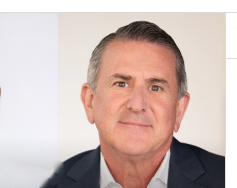The pay pattern of American business leadership, which is characterized by sharp increases, significant decreases, and ongoing scrutiny, is remarkably similar to Brian Cornell’s narrative. Cornell’s realized compensation dropped to $9.85 million in 2024, his lowest since 2016, from an incredible $77.5 million at his peak in 2020. He has become both a talking point and an example in financial circles because of this disparity, which is especially useful for showing how CEO pay varies.

Although his base pay of $1.4 million has been remarkably stable since 2019, stock-linked awards have always been the real source of his income. Designed to be extremely effective, these performance-based incentives only paid executives when Target reached challenging goals. However, due to the retailer’s failure to meet sales, earnings, and shareholder return targets, those rewards were drastically cut in 2024. Even yet, Cornell only made $5.5 million from vested equity, a significant drop from the $13.6 million awarded the year before.
Brian Cornell – Personal and Professional Information
| Attribute | Details |
|---|---|
| Full Name | Brian Cornell |
| Year of Birth | 1959 (65 years old in 2025) |
| Birthplace | Queens, New York, U.S. |
| Education | MBA, UCLA Anderson School of Management |
| Current Role | Chair and CEO, Target Corporation |
| Tenure at Target | Since 2014 |
| Annual Base Salary | $1.4 million (unchanged since 2019) |
| 2024 Total Compensation | $9.85 million |
| Peak Compensation (2020) | $77.5 million |
| CEO Pay Ratio (2024) | 753:1 |
| Median Employee Pay (2024) | $27,090 |
The data presents a complex picture. Target’s 4.4% decline in fourth-quarter sales raised concerns about competition and consumer behavior. In response, Cornell presented a bold plan to increase income by $15 billion over the following five years. Given that he had earlier indicated that he might contemplate retiring within “three years,” that promise, which was very effective in conveying confidence, may eventually be fulfilled by his successor. However, since Target does not bind its leaders to long-term contracts, the board discreetly lifted its required retirement policy, opening the door for Cornell to stay longer.
His role is situated at the nexus of corporate instability and leadership stability. He has, on the one hand, been particularly successful in guiding Target through difficult periods, including resolving supply chain issues during the pandemic, modernizing digital operations, and retaining position against e-commerce behemoths. Conversely, the 2024 pay ratio of 753 to 1, which saw the median Target employee get only $27,090, has reignited discussion about corporate equity. Although these comparisons are not specific to Target, they highlight the disparity between frontline employees and the C-suite.
For instance, Doug McMillon of Walmart received $27.4 million for the same time period, which is almost three times Cornell’s package, while Craig Jelinek of Costco maintained much lower compensation levels. Target’s strong use of long-term equity as a motivator is highlighted in Cornell’s instance, and the difference demonstrates how retail CEOs strike a balance between brand culture and performance rewards. The strategy is quite flexible; it penalizes inferior years severely while rewarding great ones generously.
The human element is what keeps this story interesting. As a seasoned CEO who ascended from humble beginnings in Queens to become the head of one of the biggest stores in America, Cornell epitomizes both ambition and responsibility. Compared to previous compensation structures that prioritized guaranteed incentives, his willingness to tie remuneration so closely to business performance may seem especially novel. However, when performance lags, the instability also exposes executives to public scrutiny. Shareholder activists have been more outspoken recently, calling for businesses to match compensation to ethical and environmental standards in addition to financial goals.
Cornell’s experience shows that even in the face of setbacks, leadership longevity is incredibly dependable in comforting investors. Target has profited from his consistent employment of over ten years, in contrast to tech companies whose CEOs can change positions frequently. Despite inconsistent financial results, his leadership has been highly regarded due to this steadiness, as well as a reputation for strategic alliances and forward-thinking projects.
